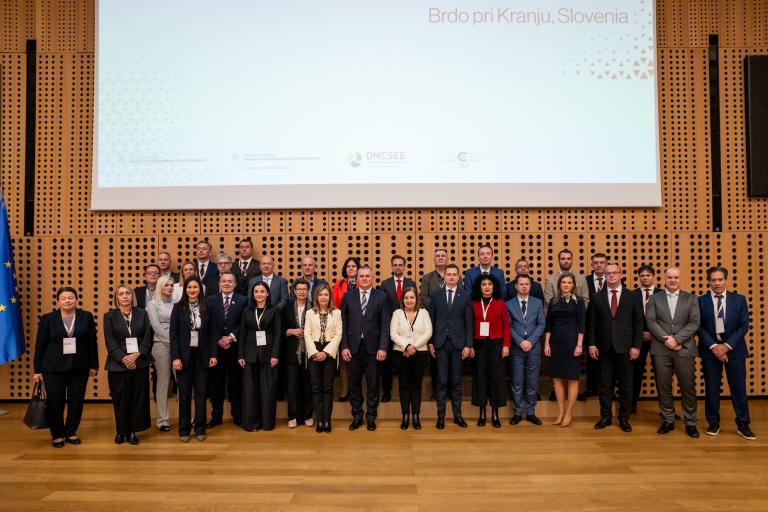In the face of more extreme weather and economic impacts, investment in National Meteorological and Hydrological Services is essential to strengthen early warnings and inform climate preparedness in south-eastern Europe.
This was the main message of WMO Secretary-General Celeste Saulo at a ministerial conference "Challenges of Adaptation to Climate Change in South-East Europe," hosted by Slovenia's Ministry of the Environment, Climate and Energy.
The conference brought together environment ministers, heads of hydrometeorological services of South-East Europe and representatives of international and youth organisations in order to exchange good practices and strengthen regional cooperation.
"2024 was the hottest year on record, both globally and in Europe. South-East Europe is among the most climate-vulnerable regions of the continent, with temperatures rising at twice the global average," said Celeste Saulo.
"Coastal areas, including the Adriatic coast, are increasingly at risk due to rising sea levels, leading to greater threats of flooding and infrastructure damage," she said.
"The frequency and severity of extreme weather events in the region have intensified, resulting in significant socioeconomic and environmental consequences. Multi-hazard early warning services are a must," she said.
In August 2023, Slovenia experienced its worst flooding on record, impacting 1.5 million people, displacing 8,000 people from their homes and causing loss of life. Torrential rainfall caused landslides and economic disruption in July 2024. Storm Boris inflicted massive damage on a number of European countries in September 2024.
Extreme heat is impacting health, agriculture, water supplies and energy. In 2023, 41% of Southern Europe endured strong to extreme heat stress. In both 2023 and 2024, wildfires caused loss of life and property.

"South-East Europe is under great pressure from climate change, so we need to act quickly and decisively. Our mission is to strengthen scientific and technological capabilities, improve data support and provide concrete adaptation measures that will protect our environments, economies and communities," said Slovenian Minister of the Environment, Climate and Energy Bojan Kumer.
Celeste Saulo said that subregional collaboration was vital to pave the way for concrete climate action - a view shared by Leena Ylä-Mononen, Executive Director of the European Environment Agency (EEA) and other participants.
"These efforts are vital to transforming knowledge into impact, ensuring that cooperation and shared expertise lead to real progress. We need regional collaboration and collective commitment to build a more resilient future," she said.
One important initiative in this regard is the development of South-East European Multi-Hazards Early Warning System, which is currently in pilot mode.
The conference highlighted the role of meteorological and hydrological services in multi-hazard early warnings and in climate change monitoring and prediction.
Jože Knez, Director General of the Environment Agency of the Republic of Slovenia stressed that the National Hydrometeorological Services are striving to improve early warning systems against storms, floods and drought.
This challenge is beyond the capabilities of most services in the region, which is why better international cooperation, including the exchange of data as well as knowledge and experience, is essential, he said.






